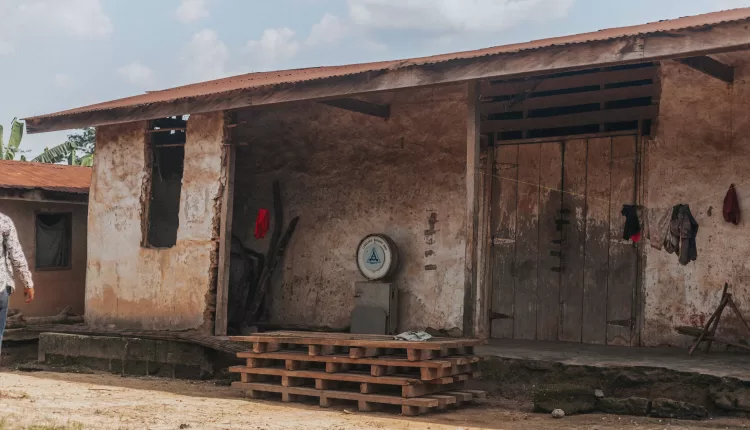A Ghana Cocoa Board (COCOBOD) letter approving the importation of cocoa beans has sparked an uproar in the world’s second largest cocoa-producing country.
In the letter dated January 25, 2024, the management of COCOBOD authorises Afrotropic Cocoa Processing Company to import a total of 3500 metric tonnes of cocoa beans from Cote d’Ivoire and Nigeria.
While the letter does not state the reasons behind the importation, the Ghanaian populace took to social media to lament the development.
Reactions generally alleged a possible collapse of cocoa production in Ghana, a sector deemed the backbone of the West African state’s economy.
However, according to industry experts, the practice of permitting cocoa beans importation from elsewhere is nothing new.
A source said that for several years, Ghana’s cocoa regulator has been approving the importation of some quantities of the commodity for the utilisation of processors.
“It’s the routine; it’s allowed,” a contact with knowledge of the matter told Cocoa Post, adding that “they can [import] if they want to.”
There are twelve cocoa processing companies operating in Ghana, with a combined installed capacity of about 500,000 metric tonnes.
They include Barry Callebaut, Niche Cocoa, Cocoa Touton, Cargill, Chocomac, Olam, Afrotropic, WAMCO, and CPC, among others.
“All these processors have a clause in their cocoa supply contract with COCOBOD that allows them to import cocoa beans with prior approval,” the expert stated.
Another industry connoisseur, however, insisted that companies desirous of importing “must clearly indicate the purpose,” as per the rule.
“In the past, some companies got approval to import cocoa beans to enable them to meet client’s recipe specifications,” this source revealed.
A Cocobod document available to Cocoa Post lends credence to that explanation.
In November 2016, Barry Callebaut received the nod “to import 100 MT of cocoa beans from Ecuador as part of [their] operational requirements for a particular recipe for a customer,” an excerpt from the document read.
COCOBOD Statement
A statement issued by the Public Affairs unit of COCOBOD on Sunday afternoon emphasised that the development “is an industry practice.”
It said this “has existed for over 20 years to allow factories to import from other countries, including Cote d’Ivoire, Togo, Nigeria, and Ecuador.”
“Ghana’s cocoa is a premium cocoa, and as part of cost management and operational strategy, companies often blend premium Ghana cocoa with less premium cocoa beans from other producing countries,” Cocobod explained.
A cocoa specialist who wants their identity withheld upheld the Ghana regulator’s explanation.
“No confectionery or chocolate manufacturer in Europe, Japan, or the US can afford to make products with 100% premium Ghana cocoa and remain in business,” the expert argued.
For example, some European chocolatiers are known to import 100% semi-finished premium Ghana cocoa products like liquor and mix them with similar products from elsewhere in their factories to attain certain recipe standards.
“Others will minimise production costs by requesting a processor in Ghana to import less expensive origins to blend with Ghana to, for instance, achieve their FFA (free fatty acids) content specifications,” they noted.
More Questions than Answers
Reacting to COCOBOD‘s statement, Ghanaian cocoa civil society actors say the press statement raises more questions than it purported to answer.
“The question we are asking is, has Cocobod been able to meet the local industry’s cocoa supply needs and contracts?” quizzed Elvis Oppong-Mensah, the Programme Officer at Civic Response Ghana.
“I believe after supplying to the foreign companies to whom we owe an obligation to supply because we have borrowed from them, there is little left to supply to the local industry,” suggested Oppong-Mensah.
According to the civil society front, there are also questions about the sheer quantities of cocoa beans being imported now compared to the smaller quantities in the past, the timing, and the reasons for the importation.
The country is currently in the main crop season, which averagely accounts for about 85% of Ghana’s annual output, with the light crop cocoa making up for the remaining 15%.
Obed Owusu Addai is the Executive Director of EcoCare Ghana and a Co-Convenor of the Ghana Civil-society Cocoa Platform (GCCP).
“There is an inherent underlying problem that COCOBOD, per their press release, are trying to avoid, which is not helpful for the cocoa sector,” Addai observed.
Cocoa Shortage
The Ghana Cocoa Board has since December 2023 received an $800-million cocoa syndicated loan for the purchase of Ghana’s 2023/24 cocoa crop.
“The problem is the evident shortage of cocoa beans caused by delays in the release of funds to LBCs as well as rumours of smuggling of beans along Ghana’s border towns, especially in the Oti Region,” Obed Owusu Addai alleged.
Last month, Cocoa Post broke the story of a looming cocoa supply crisis threatening the operations of local cocoa processing firms in Ghana.
An industry player hinted to this publication on condition of anonymity that some local cocoa processors have temporarily halted operations or are having to import cocoa beans because of Cocoa Marketing Company’s inability to honour supply contracts paid for in advance.
“It is sad that a country that has in the recent past produced over 1,000,000 metric tonnes of cocoa is now importing cocoa beans to feed its local processors.
If the farmer is not made a priority the future of the cocoa industry is bleak,” Addai warned.
- Illegal Mining Threatening Ghana’s $230M Cocoa Rehabilitation - April 10, 2024
- Ghana Raises Cocoa Farmgate Price by 58.26% to GHC2,070 per bag - April 5, 2024
- New Standard for Measuring Cocoa Household Income Launched - April 5, 2024
